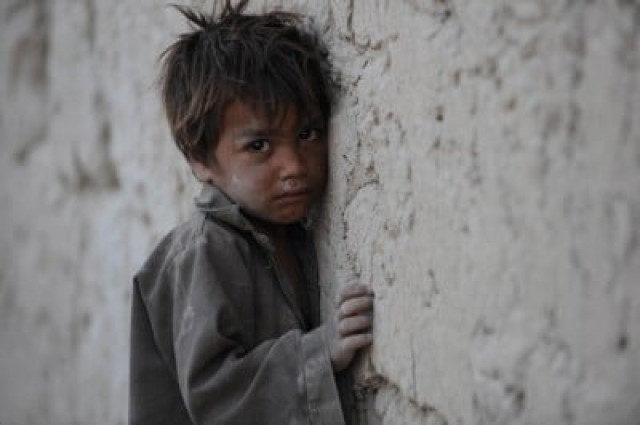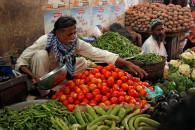High malnutrition rate affecting economy
Rajwana says collaborative efforts key to addressing the problem

PHOTO: FILE
A high rate of malnutrition is adversely impacting the country’s economy. It results in loss of around three to four per cent of the gross domestic product (GDP) every year, Governor Malik Rafique Rajwana said on Tuesday.
He was speaking at the inaugural session of the International Human Nutrition Conference. The conference is among several events to be held under a Food and Nutrition Week 2015 that kicked off on Tuesday. The University of Veterinary and Animal Sciences (UVAS) Lahore has organised these events on the theme of Professional Collaboration for Better Health in collaboration with the Nutritionists Association of Pakistan (NAP), the Pakistan Poultry Association (PPA), the Pakistan Academy of Sciences (PAS), the Pakistan Medical Association (PMA) and the Forman Christian College (FCC) Lahore.
Rajwana said the government realised that it could not tackle malnutrition on its own. He stressed the need for collaboration between the government, the private sector and the academia to attain food security in the country.
Rajwana assured support to the participants of the conference and said that he would see to it that their recommendations were implemented by the government.
“Pakistan is a signatory to the United Nations’ Scaling-up Nutrition Movement that highlights the importance of a multi-sector approach to addressing malnutrition,” he said. Implementation of nutrition-sensitive interventions in the food, agriculture, education, social protection and water and sanitation sectors was a need of the hour, he added.
Rajwana said food shortage would be the biggest challenge for the global community in the coming years. He said it could be addressed only through collaborative efforts.
In his welcome address, UVAS Vice Chancellor Talat Naseer Pasha said the university was leading efforts for tackling malnutrition and ensuring food security in the livestock and its allied sectors. He said the university was also catering to the needs of the industry and other stakeholders pertaining to human resources and research and policy.
Dr Pasha said malnutrition was a major cause of high rates of chronic diseases in the country and worsening of the quality of life of an average citizen. He said he hoped that deliberations among experts during various sessions scheduled during the week would result in doable recommendations for the government and the private sector.
Other speakers at the session were FCC rector James Tebbe, Prof Kausar Abdullah Malik and NAP president Dr Musaddiq Asif.
Conference secretary Muhammad Nasir said that 110 papers would be presented in 28 technical sessions during the nutrition week. Findings of the research carried out by the participants have been displayed in the form of posters at an exhibition that will continue through the week.
Experts and academics from 15 countries are participating in the nutrition week.
Besides the International Human Nutrition Conference, the Food and Nutrition Week 2015 would also feature an International Conference on Food and Nutritional Security, an International Poultry Nutrition Conference and a Food and Nutrition Expo.
Published in The Express Tribune, November 4th, 2015.



















COMMENTS
Comments are moderated and generally will be posted if they are on-topic and not abusive.
For more information, please see our Comments FAQ